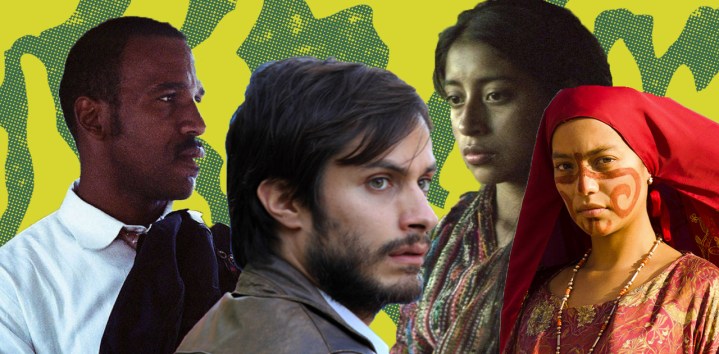The 25 Best Latin American Films of the 2010s

Collage art by Stephany Torres for Remezcla
This December marks not only the end of 2019 but also of the 2010s as a decade. Such a momentous occasion serves as a perfect excuse to look back and assess what only the second decade of the twenty-first century has offered. Which is to say: expect plenty of “Best of the Decade” lists in the weeks to come. One such list near and dear to our heart is Cinema Tropical’s “Best Latin American Films of the Decade.” The ranking is based on a poll of 97 international film festival and cinematheque programmers from the Americas and Europe conducted by the New York-based nonprofit organization, the leading presenter of Latin American cinema in the United States.
In total, 234 movies were mentioned in the poll, which were then culled to reveal the selection below. Encompassing titles from nine different countries (with Mexico boasting the most entries with six) and featuring double mentions for five different filmmakers (Ciro Guerra, Tatiana Huezo, Kleber Mendonça Filho, Pablo Larraín, and Sebastián Lelio – arguably a shortlist that captures just how potent and diverse Latin American cinema has become), the list is billed as a Top 25 but it actually includes 27 entries. Turns out getting close to 100 people to decide on such matters necessarily ends up yielding ties. Which is all the better for us as we get to see an even broader picture of the regional cinema being celebrated by it.
“This list is a clear proof that, for another decade, Latin America continued to be one of the main epicenters of international cinema. Latin America has played a key role in the advancement of global cinema, offering new and exciting narratives despite the fact that the cinema of the region remains largely overlooked,” says Carlos Gutiérrez, co-founder and executive director of Cinema Tropical.
In case you’re curious to see who took the top spot (spoiler alert: It’s a great film directed by the same person who topped Cinema Tropical’s 2000-2009 poll), take a look at the full list below.

Cinema Tropical put together a list of the top 68 films of the decade. To check out the full list, visit them here.